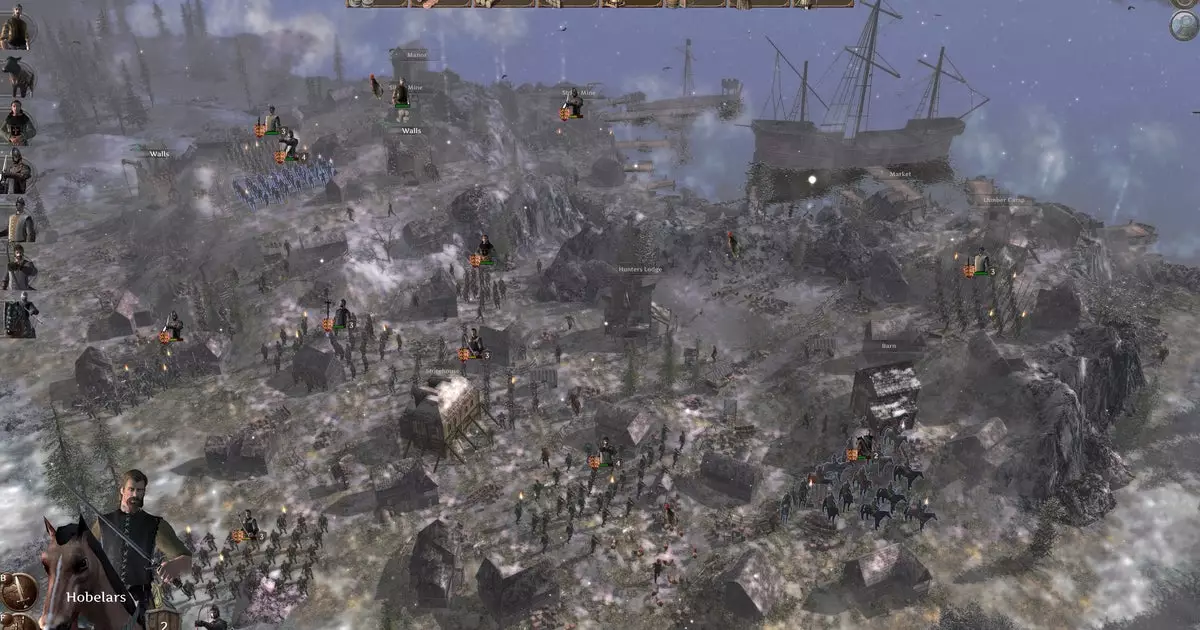The Crusades, with their mix of fervent religious zeal and brutal warfare, have shaped history in a way that resonates even today. Often portrayed as a noble pursuit for the Holy Land, these campaigns were fraught with violence, cultural exchanges, and ethical dilemmas. The Latin Christian Church spearheaded this movement against the backdrop of Islamic expansion. However, an exploration of these events reveals they are as much about power struggles and territorial gains as they are about piety. With modern interpretations often skewed by political ideologies and sensationalized narratives—think of the phrase “deus vult” being reclaimed by various fringe groups—the historical reality becomes muddied in today’s dialogue about the Crusades.
Gaming and Historical Narratives
In the realm of gaming, the Crusades are emerging as a fertile ground for creative reinterpretation and strategic simulation. The recent launch of *Knights Of The Crusades* promises a grand strategy experience that attempts to encapsulate the complexities of this dramatic period. Developed by the minds behind the *Kingdom Wars* series, this title positions itself as a comprehensive exploration of the First Crusade and its repercussions across the Holy Land and beyond. Unlike superficial games that exploit the conflict purely for entertainment, *Knights Of The Crusades* claims to delve into the intricacies of warfare, culture, and the shifting allegiances of the medieval world.
Yet, how engaging and responsible can an entertainment medium be when it tackles such a heavy subject? There lies a delicate balance between the thrill of gameplay and the necessary sensitivity to the historical truths. While video games can serve as educational tools, there’s a risk of glorifying the violence endemic to these campaigns or trivializing the experiences of those who suffered amid the chaos. Is the mechanism of pressing buttons to raid cities and conquer territories merely a sanitized version of gruesome realities? This concern parallels the trajectory of other famous strategy games, such as the renowned *Age of Empires*, which often skirt historical accuracy for the sake of excitement.
The Two-Sided Coin of Historical Representation
By positioning players as rulers and military tacticians in a 4X format, *Knights Of The Crusades* opens a unique avenue for engagement, evoking both strategic depth and historical awareness. Nonetheless, the underlying question remains: will it responsibly navigate the murky waters of this era? There’s a potential for either a deep exploration of zealous pursuits to gain territory or a rehashed glorification of a time that ultimately led to suffering and destruction for many.
The early access nature of this game signals an opportunity for developers to iterate on gameplay based on community feedback. They promise to infuse varied cultural experiences, potentially shedding light on the perspectives often overshadowed by the dominant narratives of Christian glory and Islamic opposition. This could lead to a more nuanced portrayal of the various factions involved, from the ruthlessness of the Crusaders to the resistance of native populations—a narrative that considers humanity on all sides.
A Call for Thoughtful Engagement
As we approach this evolving project, a careful examination of how historical events are presented becomes crucial. For those well-versed in the erudition of the Crusades, this game might serve as a double-edged sword—on one side, offering a platform for reflection on the past, and on the other, risking oversimplification of its complexities. Furthermore, as players, we must engage with the content critically, recognizing that history is not merely a backdrop for our entertainment but a series of lived experiences that shaped the world.
In embarking on research around the Crusades, especially through gaming, one must consider both the gravity of the subject matter and the impact of our engagements. Encouraging a genuine discourse on its historical legacy, rather than allowing it to devolve into popular meme culture, is not only essential but also an act of respect towards those who lived through those harrowing times. Learning from history demands nuanced understanding, an aspect that potentially validates the inclusion of such a topic within a medium grounded in strategy and exploration.

